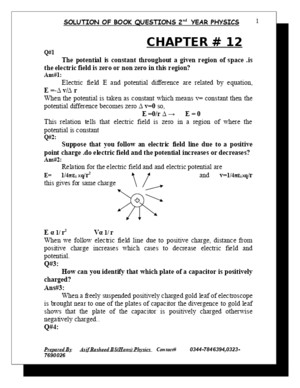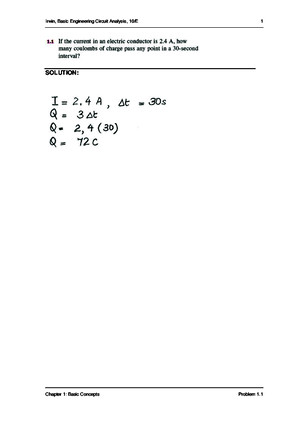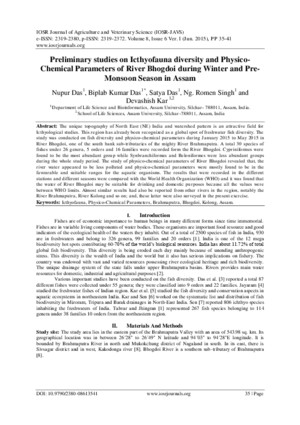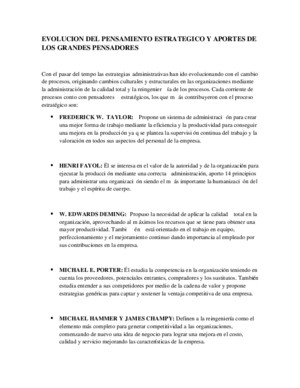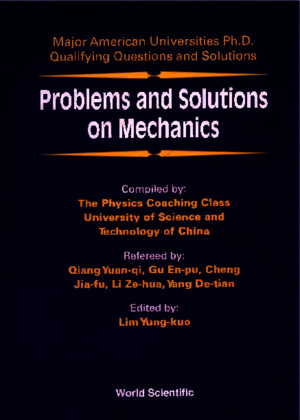85660314-Solution-of-Book-Answers-2nd-Physics-1-by-asif-rasheed-general-notes-on-first-year-and-second-year-physics-by-asif-rasheed.doc
There is document - 85660314-Solution-of-Book-Answers-2nd-Physics-1-by-asif-rasheed-general-notes-on-first-year-and-second-year-physics-by-asif-rasheed.doc available here for reading and downloading. Use the download button below or simple online reader.
The file extension - PDF and ranks to the Documents category.
Tags
Related
Comments
Log in to leave a message!
Description
Download 85660314-Solution-of-Book-Answers-2nd-Physics-1-by-asif-rasheed-general-notes-on-first-year-and-second-year-physics-by-asif-rasheeddoc
Transcripts
The pontential is constant throughout a given region of space PAGE 16 SOLUTION OF BOOK QUESTIONS 2nd YEAR PHYSICS CHAPTER # 12 Q#1 The potential is constant throughout a given region of space is the electric field is zero or non zero in this region? Ans#1: Electric field E and potential difference are related by equation, E =-∆ v/∆ r When the potential is taken as constant which means v= constant then the potential difference becomes zero ∆ v=0 so, E =0/r ∆ → E = 0 This relation tells that electric field is zero in a region of where the potential is constant Q#2: Suppose that you follow an electric field line due to a positive point charge do electric field and the potential increases or decreases? Ans#2: Relation for the electric field and and electric potential are E= 1/4πε0 xq/r2 and v=1/4πε0xq/r this gives for same charge E α 1/ r2 Vα 1/ r When we follow electric field line due to positive charge, distance from positive charge increases which cases to decrease electric field and potential Q#3: How can you identify that which plate of a capacitor is positively charged? Ans#3: When a freely suspended positively charged gold leaf of electroscope is brought near to one of the plates of capacitor the divergence to gold leaf shows that the plate of the capacitor is positively charged otherwise negatively charged Q#4: Describe the force or forces on a positive point charge when placed between parallel plates, (a) With similar and equal charges (b) With opposite and equal charges Ans#4: The electric force F on a charge q due to eclectic field E is given by F= qE (A) When a positive point charge is placed between parallel plates with similar and equal charges It will experience no electric force because electric field between the plates is zero F=qE F=q(0) =0 → F=0 (B) When a positive point charge is placed between the plates of the Capacitor it will experience electric force , F=qE S Due to electric field set up from positive to negative Q#5: Electric lines of forces never cross each other Why? Ans#5: No, two electric lines of forces never cross each other because “E” only one direction at a given point if two lines cross each other then there will be more directions at a point which is impossible Q#6: If appoint charge q of mass m is released in a non uniform electric field with field lines pointing in the same direction, will it make a rectilinear motion? Ans#6: Motion along a straight line is called rectilinear motion when a charge “q” of mass “m” is released in a non uniform electric field It will not move in a straight line and adopts irregular path due to variable electric field Q#7: Is E necessarily zero inside a charged rubber balloon if balloon is spherical? Assume that charge is distributed uniformly over the surface? Ans#7: Yes E is necessarily zero inside a charged rubber balloon if balloon is spherical and enclosed no charge but chage is distributed uniformly over its surface According to Gauss’s law Фe =q/ε0=0/ ε0=0 → Фe = 0 --------1 From definition, Фe = EA--------2 Putting equation 1 in eq 2 0= EA A # 0 so, E=0 Q#8: Is it true that Gauss’s law states that the total number of lines of forces crossing any closed surface in the outward direction is proportional to the net positive charge enclosed within surface? Ans#8: Yes, it is true that total no of lines of forces crossing any closed surface in outward direction proportional to the net positive charge according with surface in the outward direction proportional to the net positive charge enclosed with in the surface According to Gauss’s law, Фe =q/ε0 = constant x q → Фe α q here q = net positive charge Фe =no of electric lines of force Hence no of electric lines of forces are proportional to net positive charge Q#9: Do electrons tend to go to region of high potential or of low potential? Ans#9: Electrons tend to go to a region of high potential because high potential is more positive than the lower potential as the charge on electron is negative CHAPTER # 13 QUESTIONS AND ANSWERS:- Q#1: A potential difference is applied across the ends of a copper wire what is the effect of drift velocity (1) Increasing the potential difference (2) Decreasing the length and the temperature of the wire Ans#1 The uniform velocity that the free electrons acquire opposite to the electric field of battery is called the drift velocity (1) the increase of potential difference makes the electric field strong which cases to increase the drift velocity As given Vd = I /nAe where I= ∆V/R so, Vd = ∆V/RnAe (2) The decrease in length and temperature of the wire which causes to increase the drift velocity of the free electron in the wire Q#2: Do bends in wire effects its electrical resistance? Ans#2 We know that R=ρ L/A with bends in a wire , its length (L) and area of cross section (A) remains the same hence bends in a wire do not affect the electrical resistance (R) of the wire Q#4: Why does the resistance of a conductor rise with temperature? Ans#4 Resistance is the measure of opposition due to collision of free electrons with the atoms of the conductor As temperature of the conductor rises the irrational amplitude of the atoms of the conductor increases and hence the probability of collisions of free electrons with them increases at high temperature, the atoms offer a bigger target area to free electrons to collide with them and resistance of conducer increases Q5#: What are the difficulties in testing whether the filament of lighting bulb obeys ohm law? Ans#5 At the beginning, when bulb is turned ON its filament is at low low temperature and it obeys Ohm’s law I α V Later on when current rises to its maximum value the maximum power P=I2R dissipated across the filament which increases resistance but current increases at lower rate and does not obey ohm’s law Q#6: Is the filament resistance lower or higher in a 500W, 220V light bulb than in 100W, 220V bulb? Ans#6 Resistance of 1st bulb= R1=? Resistance of 2nd bulb =R2=? Power of first bulb =P1=500 Watts Power of 2nd bulb=P2=100 Watts Voltage =V=220 volts By applying the formula, P=V2/R → R=V2/P For1stbulb = R1=V2/P1 (220)2/500 = 48400/500 = 968Ω For 2nd bulb =R2=V2/P2 (220)2/500 = 48400/100 = 484Ω Q#7: Describe a circuit which will give a continuously varying potential? Ans#7 Potentiometer is an instrument which gives continuously varying potential Its circuit diagram is given as When the sliding contact C is moved from A to B ,r varies from O to R and potential varies from O to E the current following through is given by ; I=E/R …………1) The potential drops across ‘r” is given by V=Ir as I=E/R so V=E/R x r V= r/R E ………………2) This gives us continuously varying potential Q#8: Explain why the terminal potential difference of a battery decreases when a current drawn from it is increased? Ans#8 The terminal potential difference is given by / Vt= E –Ir ………1) The emf E of cell is constant This relation shows that when current I through is increases, the product Ir increases which cases to decrease the the terminal potential difference Vt Q#9: What is the wheat stone bridge? How can it be used to determine an unknown resistance? Ans#9 An electrical circuit devised by Professor Charles Wheatstone used to determine unknown resistance is called wheat stone bridge It consists of four resistances R1, R2, R3, and R4Connected in the form of mesh ABCDA A battery of emf E is connected between points A and C through a switch S a sensitive galvanometer is of resistance Rg is connected between points B and D Its equation is , R1/R2 = R3/R4 ………1) Figure Determination of unknown resistance: To determine unknown resistance in the arm containing R4 (R4 =Rx Then known value of R1, R2 And R3are so adjusted that galvanometer no deflection then from equation no i R1/R2 = R3/Rx x = R2/R2 x R3 Chapter #14 Q#1 A plan conducting loop is located in a uniform magnetic field that is directed along the x-axis for what orientation of the loop is the flux a maximum? For what orientation is the flux a minimum? Ans#1: When plane of loop is placed perpendicular to the magnetic field the flux will be maximum Фe = EAcos0 = EA (max) Figure : When plane of loop is placed parallel to the magnetic field, the flux will be minimum as, Фe = EAcos90 = 0 (min) Figure Q#2 A current in a conductor produces a magnetic field, which can be calculated using Ampere’s law Since current is defined as the rat of flow of charges, what can you conclude about the magnetic field due to stationary charges? What about moving charges? Ans#2: Magnetic field due to stationary charges is zero Moving charges produce magnetic field around them According to faraday law B = μ0I/2πr for stationary charges, I=0 so, B= 0 For moving charges B = μ0I/2πr I not negative Then B also not negative Q#3 Describe the magnetic field inside a solenoid carrying a steady current I” if (a) the length is solenoid is doubled but the number of turns remains the same and (b)the number of turns doubled but the length remains same Ans#3: The magnetic field due to solenoid is given by, B = μ0 n I As n = N /L soB = μ0 (N/L) I Case #1: If the length is double and N remains the same B = μ0 (N/2L) I = 1/2 μ0 (N/L) I = 1/2 B Which means magnetic field reduce to half Case #2: If the number of turns (N) is double and L remains the same B = μ0 (2N/L) I = 2 μ0 (N/L) I = 2 B Which means magnetic field increases to two times Q#4 At a given instant the proton moves in the x direction in a region where there is magnetic field in the negative z direction What is direction of the magnetic force? Will the proton continue to move the positive x direction? Explain Ans# 4: If proton moves along the positive x –axis in a region of magnetic field is along negative z –axis the magnetic force is given by RH rule, Fb = q(v x B) , this force(Fb) is along the positive Y- axis and it will be start to move in circular path in xy plane around z –axis and it will not continue to move in the positive x – direction Q#5 Two charged particles are projected into a region where there is a magnetic field perpendicular to their velocities If the charges are reflected in opposite directions, what can you say about them? Ans#5: Two charge particles are projected in a magnetic field perpendicular to their velocities if they are deflected in opposite directions while moving in the magnetic field then two particles are oppositely charged As we know that in magnetic field particles are deflected so they are oppositely charged So, one particle is positively charged (proton) and other is negatively charged (electron) Q#6 Suppose that a charge q is moving in a uniform magnetic field with a velocity v Why is there no work done by the magnetic force that acts on the charge q? -Ans#6: A charge q is moving in uniform magnetic field B, with a velocity V in a Circular path due to magnetic force The angle between magnetic force and velocity will be 900 work done is given by, W = Fd = Fd cos 900 =0 (as cos of 900 is zero) So no work is being done Q#7 If a charged particle moves in a straight line through some region of space, can you say that the magnetic field in the region is zero? Ans#7: No, when a particle moves in straight line in the direction of magnetic field B q o v The force acting on charge will be zero as angle is 00 charge q and magnetic field is parallel so, F= qvBsin00 = qvB(0) = 0 Therefore we can not say magnetic field in this zero Q#8 Why does the picture on TV screen become distorted when a magnet is brought near the screen? Ans#:8 As the picture is formed on the TV screen with the help of beam of electrons , when a magnetic is brought is near the TV screen ,the beam of electron is deflected due the magnetic force which is given by, F= evBsinθ0 on the each electron Q#9 Is it possible to orient a current loop in a uniform magnetic field such that the loop will tend to rotate? Explain Ans#9 The torque acting on a current carrying loop in the uniform magnetic field is given by, τ(torque )=NIABcosα ,Where α is the angle between B and plane of loop if α= 900 then cos of 900= 0 so torque will be zero here this shows that if plane of loop is oriented at 900 with B Then loop will not tend to rotate, as τ=0 Q#10 How can a current loop be used to determine the presence of a magnetic field in a given region of space? Ans#10: When current carrying loop is placed in the presence of a magnetic field with its plane makes an angle α with B The torque acting on it will be τ(torque )=NIBAcosα if current loop deflects , filed is present other wise not Q#11 How can you use a magnetic field to separate isotopes of chemical element? Ans#11: When isotopes of chemical element are projected in a magnetic field at right angle Then magnetic force, Fb= evBsin90 = evB Provide centripetal force, Fc = m V2/r Bev = m V2/r r = mv/Be Isotopes have same charge, but due to different masses they adopt different paths due to which fall at different places and are separated Q 12: What should be the orientation of a current carrying coil in a magnetic field so that torque acting upon the coil (a)maximum (b) minimum Ans#12: When the current carrying wire placed in the uniform magnetic field The torque acting on it is given by, τ(torque )=NIBAcosα Where α is the angle between magnetic field (B) and plane of the coil (a) when plane of the coil is oriented parallel to to B then α=0 and cos0 = 1 so, τ(torque )=NIBA(1) = NIAB(max) Torque will be maximum (b) When plane of coil is oriented at right angle to B then angle will be 90 so, α=90 and cos 90 = 0 τ(torque )=NIBA(0) =0 at this the torque will be minimum Q#13 A loop of wire is suspended between the poles of a magnet with its plane parallel to the pole faces What happens if a direct current is put through the coil? What happens if an alternating current is used instead? Ans#13: Torque on loop wire is given by, τ(torque )=NIBAcos α When the loop of wire is suspended between the poles of a magnet with its plane parallel to pole faces then α =90 and cos 90 = 0 then we get the result τ(torque )=NIBAcos90 =0 if direct current or alternating current is passed through the coil these current have no effect on the loop Q#14 Why the resistance of an ammeter should be very low? Ans#14: Ammeter is always connected in series the magnitude of current decreases through through the circuit with the presence of ammeter to measure I R maximum current the resistance of ammeter should be very small as compared to the resistance of circuit Ans#15: Why the voltmeter should have a very high resistance? Ans#15: Voltmeter is always connected in parallel with two points where potential is to be measured The potential across the points decreases with presences of voltmeter because it draws some current I of the circuit to reduce the current through voltmeter, the resistance of voltmeter should be large as compared to the resistance of circuit A IR R B CHAPTER # 15 Q#1 Does the induced emf in a circuit depend upon the resistance of the circuit? Does the induced emf depend upon the resistance of the circuit? Ans# 1) According to Faradays law emf is given by ε =-N ∆Ф/∆ t This relation shows that emf induced in coil depend upon the rate of change of magnetic flux and does not depends on the resistance of the coil 2) While in case of ohm law induced current flowing through coil depends upon the resistance R, of the coil I= ε / R Q#2 A square loop of wire is moving through a uniform magnetic field The normal to the loop is oriented parallel to the magnetic field Is emf induced in the loop? Give a reason for your answer? Ans#2 B A v ε = VBLsinθ0 If the vector area is parallel to B then according to faradays law the time rate of change of flux becomes zero ∆Ф/∆ t=0 for N=1 ε =-N ∆Ф/∆ t = -1x 0=0 Hence there is no emf produced in a loop Q#3 A light metallic ring is released from above into a vertical bar magnet Viewed for above, does the current flow clockwise or anticlockwise in the ring? Ans#3 According to lens’s law the direction of induced current will oppose the motion of ring towards the bar magnet for this purpose, the induced current should flow in the clock wise direction the ring Q#4 What is the direction of the current through resistor R in fig? when switch S is (a) closed (b) opened Ans#4 a) As the switch is closed, according to lens’s law, the direction of current induced in R will be in anti clockwise direction b) A switch S is opened according to lens’s law the direction of current induced in R will be in the clock wise direction Q#5 Does the induced emf always act to decrease the magnetic flux through a circuit? Ans#5 No, induced emf does not always act to decrease the magnetic flux through the circuit according to lens’s law ,when bar magnet with N pole is moved towards a loop flux decreases and when it taken away from a loop flux increases which case emf induced Q#6 When the switch in the circuit is closed a current is established in the coil and the metal ring jumps upward (fig) why? Describe what would happen to the ring if the battery polarity were reversed? Ans#6 When switch S is closed, the changing flux of coil causes to induce current in the metal ring which produces flux opposite to that of coil and ring is replaced and jumps upward Same thing will be happen if polarity of the battery is reversed Q#7 The fig shows a coil of wire in the xy plane with a magnetic field directed along the y – axis Around which of the three coordinate axes the coil should be rotated in order to generate an emf and a current in the coil? Ans#7 The coil must be rotated about about x-axis to get change of magnetic flux and an induced current through it The emf induced in the coil is given by ε =NωABsinθ0 only in this case emf is induced If the coil rotated about z-axis then no change of magnetic flux takes place If coil rotated through y-axis then the flux through it will be zerob/c plane of the coil is at all times parallel to the lines of magnetic field How would you position a flat loop of wire in a changing magnetic field so that there is no emf induced in the loop? Ans#8 Induced emf is given by, ε =NωABsinθ0 N=1 so, ε =ωABsinθ0 As flate loop of wire is parallel to changing magnetic field then θ=00 ε =ωABsin00 = 0 this shows that no flux change through it and hence no emf is induced Q#9 In a certain region the earth’s magnetic field vertically down when a plane files due to north, which wingtip is positively charged? Ans#9 The magnetic force on a moving electric charge is given by, F = -e (V X B) This relation shows that F acting at right angle to v and B where V is towards north B is vertically downward, by applying right hand rule the electron moves towards left direction of F is directed towards west N w E S Q#10 Show that ε and ∆Фe/∆t have same units? Ans#10 ε = W/q as unit of work is joule and charge is coulomb so, ε = J/C = JC-1 = volt a) Hence the unit of ε is volt Unit of ∆Ф/∆ t is ---------b) ∆Ф = B∆A = NA-1m-1 m2 ∆ t = sec Then b ) becomes , ∆Ф/∆ t = NA-1m-1 m2/s ∆Ф/∆ t = N m/A s As N m =J, A s = coulomb = C ∆Ф/∆ t = J/C = volt Q#11 When an electric motor, such as an electrical drill, is being used, does it also act as a generator? if so what is consequences of this? Ans#11 When an electrical motor is running, its armature is rotating in a magnetic field a torque acts on the armature and at the same time magnetic flux is changing through is changing which produced an induced emf the induced emf opposes the rotation of armature this means that motor also act as generator when it is running when motor rotate without load it will rotate quite easy,then large back emf is induced but in case of when motor is over loaded the induced back emf in the coil produces high current which cause to burn the motor out Q#12 Can a DC motor be turned into a DC generator? What changes are required to be done? Ans#12 Yes, DC motor and DC generator are same in construction but the difference is that DC is mechanically driven instrument while DC motor is electrically driven If voltage is supplied by connecting a battery to slip ring of DC generator, then DC generator acts as DC motor When current passes through armature of motor a torque is produced which rotates the armature by converting electrical energy into mechanical energy Thus a DC motor can be converted into DC generator There are two changes occurs to convert DC motor into DC generator 1) The magnetic field must be applied by permanent magnet and not by electromagnet 2) An arrangement to rotate the coil armature should be provided Q#13 Is it possible to change both area of the loop and the magnetic field passing through the field and still not have an induced emf in the loop? Ans#13 Yes, it is possible in the magnetic flux takes due to the change in the area of the loop and magnetic field; no emf will be induced in the loop Magnetic field is given by ∆Ф = B A =B∆cosθ if the vector area ∆A is parallel to magnetic field B θ = 00 so, ∆Ф =B∆Acos00 cos00 =1 ∆Ф =B∆A if b B and A are constant then , ∆Ф =0 Є =-N∆Ф/∆t Є =-N x 0/ ∆t =0 Hence no induce emf in the loop will be produced Q#14 Can an electric motor be used to driven an electric generator with the out put from the generator being used to operate the motor? Ans#14 No, it is impossible If it is possible it will be self operating system without getting energy which is against the law of conservation of energy Moreover the efficiency is always less than 100℅ Hence a combination of motor and generator can never produce more energy out than its energy Q#15 A suspended magnet is oscillating freely in a horizontal plane The oscillations are strongly damped when a metal plate is placed under the magnet Explain why this occurs? Ans#15 The oscillating magnet produces change of magnetic flux close to it The metal plate below it experience a the change of magnetic flux As a result eddy current produced inside the metal according to lens’s law , Eddy currents oppose the cause which produces it Therefore, the oscillations of magnet are strongly damped Q#16 Four unmarked wires emerge from a transformer What steps would you take to determine the turn’s ratio? Ans#16 Four wires coming out of transformer are the ends of two coils (p&s) of transformer and each coil has negligible resistance The coils are separated as primary and secondary An alternating voltage of known value vp to the primary coil the output voltage across the secondary coil The turn ratio of the coil is determined as, Vs/Vp =Ns/Np Q#17 a) Can a step up transformer increases the power level? b) In a transformer, there is no transfer of charge from the primary to secondary How is then the power transferred? Ans#17 a) No, a step up transformer can not increase the power level The power of out put is always less than input In ideal case input is equal to the out put b) Two coils of transformer are magnetically linked, the change of flux through one coil is linked with the other coil and thus emf is produced Q#18 When the primary of a transformer is connected to ac mains the current in it, a) is very small if the secondary circuit is open ,but, b) Increases when the secondary circuit is closed explain these facts Ans#18 a) If the secondary circuit is open, then out power will be zero because out put power always les than input power therefore very small value of current is being drawn by a primary coil of transformer ac main b) When the secondary circuit is closed, the out power will be increase therefore the transformer will draw a large current from the ac mains to increase the primary power --- 90o F Prepared By Asif Rasheed BS(Hons) Physics Contact# 0344-7846394,0323-7690026

